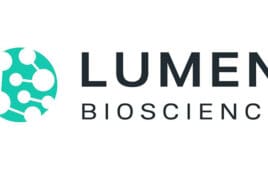
[Peter Hansen/Adobe Stock]
The recent data from GSK’s phase 3 trial, NCT05590403, revealed that Arexvy elicited a non-inferior immune response in adults aged 50 to 59 compared to those aged 60 and older, meeting the trial’s primary endpoints. If the findings bear out in the final analysis, GSK could possibly win a label expansion in 2024.
The initial FDA approval of the GSK vaccine targets adults aged 60 and older. In clinical studies, the single-dose vaccine demonstrated strong efficacy in preventing lower-respiratory tract infections and more severe diseases. In a phase 3 study published in NEJM with a median follow-up of 6.7 months, the vaccine efficacy against RT-PCR-confirmed RSV-related lower respiratory tract disease was 82.6%.
Efficacy against severe RSV-related lower respiratory tract disease was higher at 94.1% while efficacy against RSV-related acute respiratory infection was 71.7%. The most commonly reported side effects of Arexvy were injection site pain, fatigue, muscle pain, headache and joint stiffness/pain.
GSK reported a few cases of atrial fibrillation, acute disseminated encephalomyelitis (ADEM) and Guillain-Barré syndrome in trial participants. The FDA is requiring a postmarketing study to gauge the risks for ADEM and Guillain-Barré syndrome.
Other RSV vaccine competitors
Following GSK’s FDA approval of Arexvy, other drug developers have also made strides in the RSV vaccine landscape. On May 31, 2023, Pfizer scored FDA approval for its RSV bivalent vaccine, Abrysvo, designed to protect adults aged 60 and older. On August 21, 2023, FDA later extended the approval to pregnant women in their 32nd to 36th week of gestation, aiming to protect newborns from RSV during the crucial first six months of life. Abrysvo demonstrated a protection rate of 66.7% against RSV and 85.7% effectiveness against severe disease in the RENOIR trial.
In the phase 3 RENOIR trial, Abrysvo demonstrated a protection rate of 66.7% against RSV and 85.7% effectiveness against severe disease.
Moderna, on the other hand, is advancing with its mRNA-1345 vaccine. The latest data reveals an 83.7% efficacy against RSV lower respiratory tract disease in older adults, and the vaccine is well-tolerated with no safety concerns. Moderna has initiated the regulatory submission process globally.
The CDC has also recommended AstraZeneca’s Nirsevimab for the protection of babies and toddlers, marking a significant stride to curb RSV-related hospitalizations and fatalities in this vulnerable age group.
The RSV vaccine market could ultimately be worth more than $10 billion, with GSK, Pfizer and Moderna poised to be early leaders.
The following table provides an update of the RSV vaccine landscape, including the current clinical trial phases and relevant notes about their efficacy and target populations. Janssen has halted its RSV development plans while Novavax has paused theirs.
| Company | Vaccine Candidate | Clinical Trial Phase | Notes |
|---|---|---|---|
| Moderna | mRNA-1345 | Phase 3 | 83.7% efficacy against RSV-LRTD in older adults, well-tolerated with no safety concerns. |
| GSK | Arexvy (GSK3844766A) | FDA approved | For individuals aged 60 and above, the efficacy rate of preventing lower respiratory tract disease is 82.6%. |
| Pfizer | Abrysvo | FDA approved | FDA approved for individuals aged 60 and older on May 31, 2023, and for pregnant women on August 21, 2023. Demonstrated a protection rate of 66.7% against RSV and 85.7% effectiveness against severe disease in the RENOIR trial. |
| Pfizer | RSVpreF | Phase 3 | Found to be 81.8% effective against severe medically attended lower respiratory tract illness caused by RSV in infants from birth to 90 days old, with a 69.4% efficacy rate during the first six months of life. FDA is set to decide on approval in 2023. |
| Sanofi | SP0274 | Phase 1/2 | Underway. Focus is on adults 18 to 50 old in a sentinel cohort and 60 years and older in main and booster cohorts. |
| Sanofi & AstraZeneca | Nirsevimab (Beyfortus) | Recommended by CDC | Monoclonal antibody designed to provide passive immunity to infants, recently recommended by the CDC for use in infants to protect against RSV. |
Filed Under: clinical trials, Drug Discovery, Infectious Disease





Tell Us What You Think!
You must be logged in to post a comment.